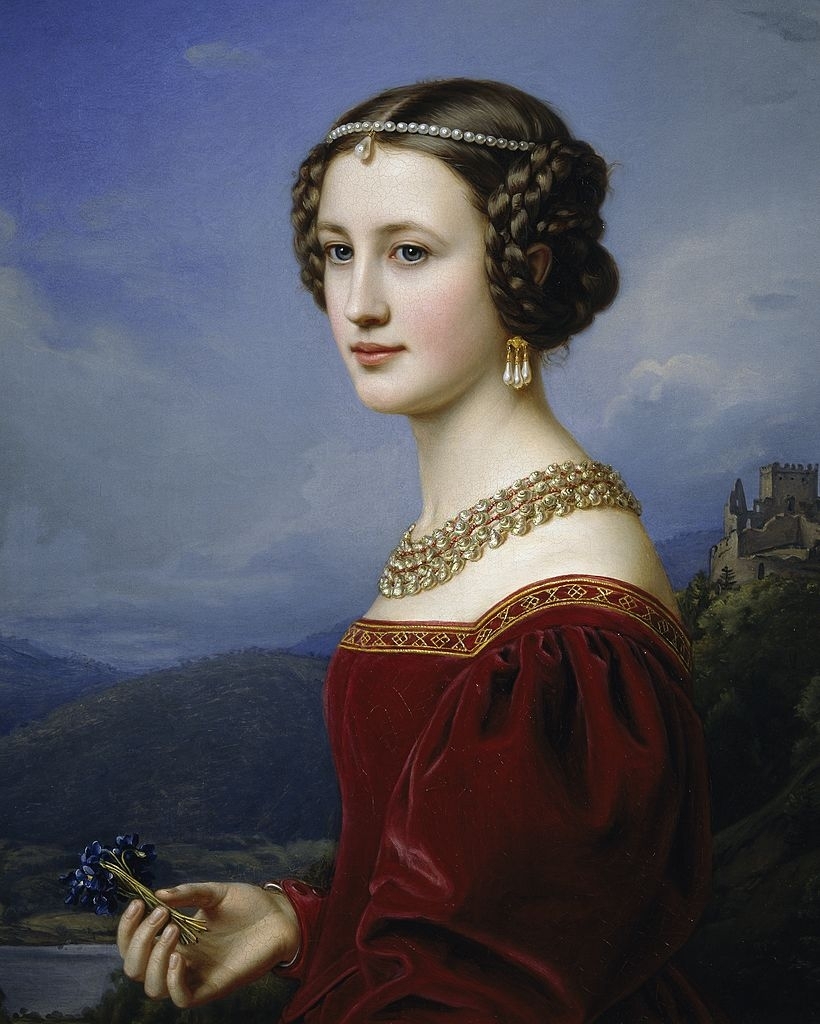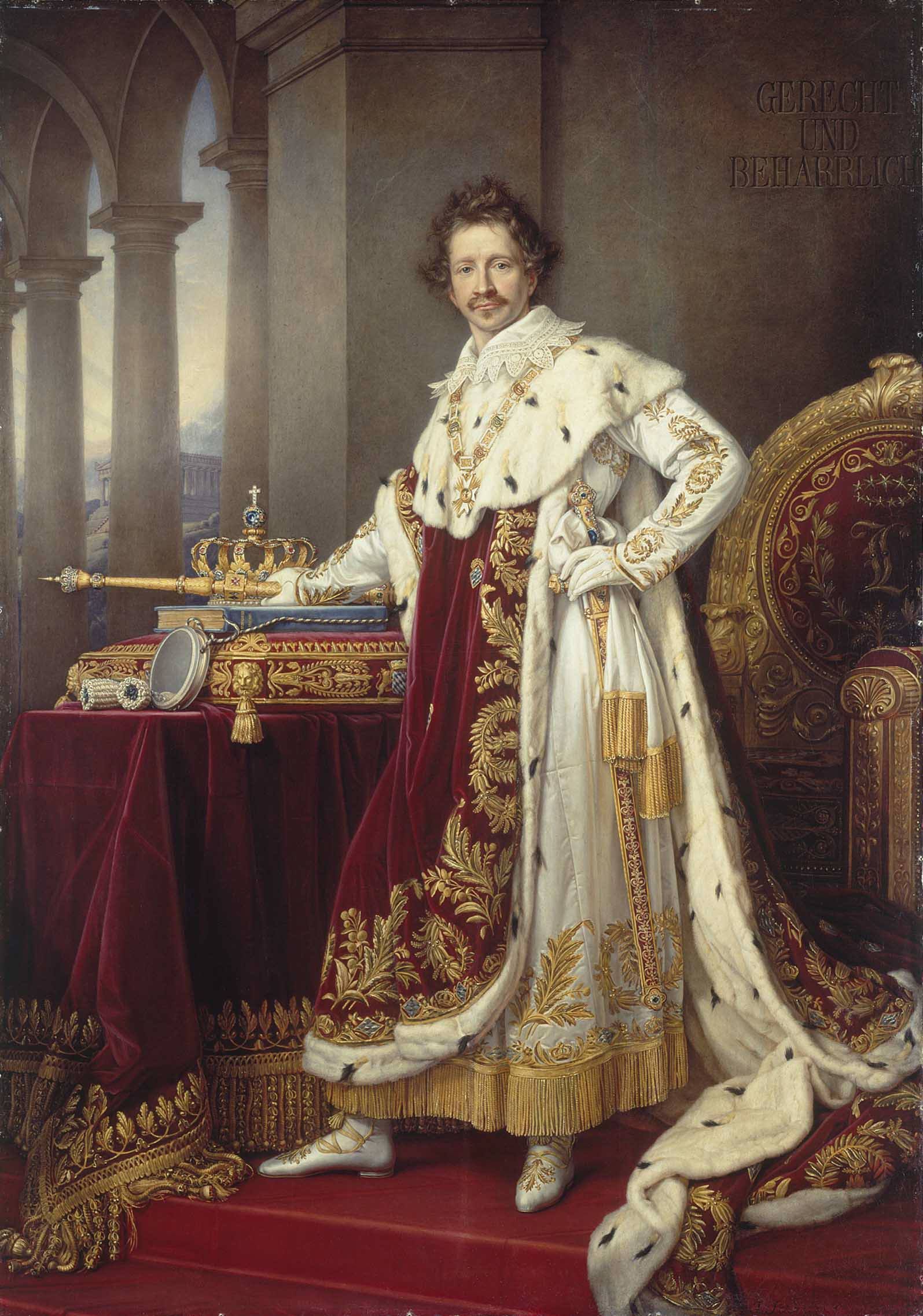|
K├╝nsberg
The K├╝nsberg family was an old German nobility, German noble family of knights from the Franconian Forest and Upper Franconia. History The K├╝nsberg family took its name from K├╝nsberg near Creu├čen and was directly related to the House of Sparneck. Members of the family held the title of Freiherr, Baron, granted to them in 1690. Notable members *Antonietta Cornelia Vetterlein, Antonietta Cornelia von K├╝nsberg (1812-1862), Bavarian beauty appeared in the Gallery of Beauties gathered by Ludwig I of Bavaria *Caroline von Holnstein, Caroline von K├╝nsberg (1815-1859), Bavarian beauty appeared in the Gallery of Beauties gathered by Ludwig I of Kingdom of Bavaria, Bavaria * (1881ÔÇô1941), legal historian * (1909ÔÇô1945), Nazi diplomat See also * Kuenssberg * , derelict castle References {{DEFAULTSORT:Kunsberg German noble families Franconian nobility ... [...More Info...] [...Related Items...] OR: [Wikipedia] [Google] [Baidu] |
Caroline Von Holnstein
Baroness Caroline von Spiering, Countess von Holnstein, Baroness von K├╝nsberg (8 May 1815, Schloss Fronberg, Fronberg Castle, Schwandorf ÔÇô 24 July 1859, Fronberg Castle, Schwandorf) was a German noblewoman, best known for her appearance in the Gallery of Beauties. Early life Baroness Caroline Maximiliana Maria von Spiering was the fifth child of Baron Carl Theodor von Spiering and his wife, Baroness Johanna Nepumukena von Enzberg. After her father's death in 1829 she began looking for a suitable husband, eventually marrying Count von Holnstein in 1831. It was no love-match, though it did mean that the Holnstein lands passed in the direct line to the Baroness von Spiering. Caroline moved into the ''Palais Holnstein'' in Munich, where her husband's position opened many doors for her at court, though life among the nobility bored her. On 8 December 1833 Ludwig I of Bavaria first saw her at a court academy. Personal life On 9 November 1831, aged 16, she married 34-year-old Co ... [...More Info...] [...Related Items...] OR: [Wikipedia] [Google] [Baidu] |
Antonietta Cornelia Vetterlein
Antonietta Cornelia Vetterlein, Baroness von K├╝nsberg (25 December 1812, M├╝nchberg ÔÇô 5 March 1862, Mainleus), was a Bavarian beauty of the 19th century. She was the granddaughter of Bayreuth Court Gardner Schneider and the daughter of State Councillor Vetterlein. She appeared in the Gallery of Beauties gathered by Ludwig I of Bavaria in 1828. Life She was born on Christmas Day in M├╝nchberg to Johann Karl Martin Vetterlein, the State Councillor and Rosaline Katrina Schneider. She died in 1862 in Schmeilsdorf, Upper Franconia. Portrait In 1826, she attended the Royal Court Heigel as a student and attracted the attention of King Ludwig I of Bavaria. In 1828, the king commissioned the court painter Joseph Karl Stieler to paint her for his Gallery of Beauties collection in Nymphenburg Palace, Munich. Most of the paintings in the Gallery of Beauties did not have significant backgrounds, but Cornelia symbolizes constancy and a castle is shown in the background. To match the c ... [...More Info...] [...Related Items...] OR: [Wikipedia] [Google] [Baidu] |
Gallery Of Beauties
The Gallery of Beauties () is a collection of 38 portraits of the most beautiful women from the nobility and bourgeoisie of Munich, Germany, gathered by King Ludwig I of Bavaria in the south pavilion of his Nymphenburg Palace. All but two were painted between 1827 and 1850 by Joseph Karl Stieler (appointed court painter in 1820), the others by Friedrich D├╝rck, a student of his. The collection's best-known works are the portraits of the shoemaker's daughter Helene Sedlmayr, actress Charlotte von Hagn, Italian noblewoman Marianna Florenzi, and the King's Irish mistress Eliza Gilbert (better known as Lola Montez). It also includes a Briton, a Greek, a Scot and an Israelite, along with relations of Ludwig's ÔÇö the wife and daughter of Ludwig of Oettingen-Wallerstein were both painted, as was Ludwig I's daughter Princess Alexandra of Bavaria. All 38 models were rewarded by Ludwig I. He took over their dowry, paid them an allowance or found them a job at court. He remained in ... [...More Info...] [...Related Items...] OR: [Wikipedia] [Google] [Baidu] |
House Of Sparneck
The Sparneck family was an old German nobility, German noble family from Franconia. History The family is known to exist from 1223 to 1744 and was named after the market village of Sparneck. One of their first castles was the Waldsteinburg; further castles were located in Sparneck, Wei├čdorf, Stockenroth, Uprode near Wei├čdorf, Stein near Gefrees, Hallerstein (now part of Schwarzenbach an der Saale) and Gattendorf. Their homeland corresponds to the old Districts of Germany, district of M├╝nchberg, now part of the Hof (district), district of Hof. The family is directly related to the Houses of Bibra family, Bibra, Gravenreuth, House of Guttenberg, Guttenberg, Kotzau, K├╝nsberg, Notthafft, Pappenheim (state), Pappenheim, Reitzenstein and Zedtwitz. As a consequence of supporting the Robber baron (feudalism), robber baron Thomas von Absberg, they were forced to give up their origin lands and moved to Upper Palatinate, keeping only few fiefs, the so-called ''Afterlehen'', e.g. in Bern ... [...More Info...] [...Related Items...] OR: [Wikipedia] [Google] [Baidu] |
Kuenssberg
Kuenssberg is a surname of German origin. Notable people with the surname include: *Ekkehard von Kuenssberg (1913ÔÇô2000), Scottish physician * Joanna Kuenssberg (born 1973), British diplomat *Laura Kuenssberg (born 1976), British journalist See also * K├╝nsberg The K├╝nsberg family was an old German nobility, German noble family of knights from the Franconian Forest and Upper Franconia. History The K├╝nsberg family took its name from K├╝nsberg near Creu├čen and was directly related to the House of S ... {{surname Surnames of German origin ... [...More Info...] [...Related Items...] OR: [Wikipedia] [Google] [Baidu] |
German Nobility
The German nobility () and Royal family, royalty were status groups of the Estates of the realm, medieval society in Central Europe, which enjoyed certain Privilege (law), privileges relative to other people under the laws and customs in the German-speaking area, until the beginning of the 20th century. Historically, German entities that recognized or conferred nobility included the Holy Roman Empire (962ÔÇô1806), the German Confederation (1814ÔÇô1866), and the German Empire (1871ÔÇô1918). Chancellor Otto von Bismarck in the German Empire had a policy of expanding his political base by ennobling nouveau riche industrialists and businessmen who had no noble ancestors. The nobility flourished during the dramatic industrialization and urbanization of Germany after 1850. Landowners modernized their estates, and oriented their business to an international market. Many younger sons were positioned in the rapidly growing national and regional civil service bureaucracies, as well as in th ... [...More Info...] [...Related Items...] OR: [Wikipedia] [Google] [Baidu] |
Knight
A knight is a person granted an honorary title of a knighthood by a head of state (including the pope) or representative for service to the monarch, the church, or the country, especially in a military capacity. The concept of a knighthood may have been inspired by the ancient Greek '' hippeis'' (ß╝▒¤Ç¤Ç╬Áß┐ľ¤é) and Roman ''equites''. In the Early Middle Ages in Western Christian Europe, knighthoods were conferred upon mounted warriors. During the High Middle Ages, a knighthood was considered a class of petty nobility. By the Late Middle Ages, the rank had become associated with the ideals of chivalry, a code of conduct for the perfect courtly Christian warrior. Often, a knight was a vassal who served as an elite fighter or a bodyguard for a lord, with payment in the form of land holdings. The lords trusted the knights, who were skilled in battle on horseback. In the Middle Ages, a knighthood was closely linked with horsemanship (and especially the joust) from its orig ... [...More Info...] [...Related Items...] OR: [Wikipedia] [Google] [Baidu] |
Franconian Forest
View to D├Âbraberg The Franconian Forest at www.britannica.com. Accessed on 1 Apr 11. (, ), is a mid-altitude in Northern , . It is located in the district of (''Oberfranken'') and forms the geological connection between the |
Upper Franconia
Upper Franconia (, ) is a (administrative 'Regierungs''region 'bezirk'' of the state of Bavaria, southern Germany. It forms part of the historically significant region of Franconia, the others being Middle Franconia and Lower Franconia, which are all now part of the German Federal State of Bayern (''Bavaria''). With more than 200 independent breweries which brew approximately 1000 different types of beer, Upper Franconia has the world's highest brewery-density per capita. A special Franconian beer route (''Fr├Ąnkische Brauereistra├če'') runs through many popular breweries. Geography The administrative region borders on Thuringia (''Th├╝ringen'') to the north, Lower Franconia (''Unterfranken'') to the west, Middle Franconia (''Mittelfranken'') to the south-west, and Upper Palatinate (''Oberpfalz'') to the south-east, Saxony (''Sachsen'') to the north-east and the Czech Republic to the east. History After the founding of the Kingdom of Bavaria the state was totall ... [...More Info...] [...Related Items...] OR: [Wikipedia] [Google] [Baidu] |
Creu├čen
Creu├čen is a town in the district of Bayreuth in Bavaria, Germany. It is situated on the Red Main river, 13 km southeast of Bayreuth. Creu├čen is famous for its stoneware beer steins. Creu├čen is the starting point of the Red Main branch of the Main-Radweg bicycle path which stretches about 600 km along the Main until the mouth into the Rhine The Rhine ( ) is one of the List of rivers of Europe, major rivers in Europe. The river begins in the Swiss canton of Graub├╝nden in the southeastern Swiss Alps. It forms part of the Swiss-Liechtenstein border, then part of the AustriaÔÇôSwit .... Notable people * Christoph Wirth (1870ÔÇô1950), German physicist and inventor References Bayreuth (district) {{Bayreuthdistrict-geo-stub ... [...More Info...] [...Related Items...] OR: [Wikipedia] [Google] [Baidu] |
Freiherr
(; male, abbreviated as ), (; his wife, abbreviated as , ) and (, his unmarried daughters and maiden aunts) are designations used as titles of nobility in the German-speaking areas of the Holy Roman Empire, the Austro-Hungarian Empire and in its various successor states, including Austria, Prussia, Bavaria, Liechtenstein, Luxembourg, etc. Traditionally, it denotes the titled rank within the nobility above ' (knight) and ' (nobility without a specific title) and below ' ( count or earl). The title superseded the earlier medieval form, '. It corresponds approximately to the English baron in rank. The Duden orthography of the German language references the French nobility title of ''Baron'', deriving from the Latin-Germanic combination ''liber baro'' (which also means "free lord"), as corresponding to the German "Freiherr"; and that ''Baron'' is a corresponding salutation for a ''Freiherr''. Duden; Definition of ''Baron, der'' (in German)/ref> ' in the feudal system The title ... [...More Info...] [...Related Items...] OR: [Wikipedia] [Google] [Baidu] |




